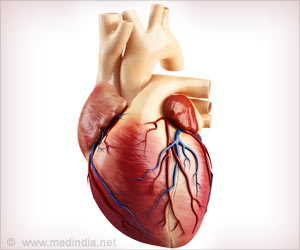Depression to be linked with an increased risk of peripheral artery disease (PAD), reveals study.

Marlene Grenon, MD, CM, a vascular surgeon at San Francisco VA Medical Center and the University of California (SFVAMC) and an assistant professor of Surgery at UCSF, led the analysis of data from 1,024 participants in the Heart and Soul Study, a prospective study of men and women with coronary artery disease who were followed for an average of approximately seven years.
"We discovered that there was an association between depression and PAD at baseline, and also found that the patients who were depressed at the beginning of the study had a higher likelihood of developing PAD during follow-up at seven years," said Grenon.
The researchers found that some of the risk for PAD was partly explained by modifiable risk factors such as smoking and reduced physical activity.
"We still don't know which comes first. Is it that patients with PAD become depressed because their mobility is impaired, or that people who are depressed engage in unhealthy behaviours such as smoking and lack of exercise, and are thus more at risk of developing PAD? Or might it be a vicious cycle, where one leads to the other? " said Grenon.
Further research is needed to tease out cause and effect, she said.
Advertisement
The study was published last month in the Journal of the American Heart Association.
Advertisement













